Shanghai Today
One man's obsession with fighting rice diseases and ensuring healthy crops - July 20, 2022
植物学家何祖华在稻田里埋头钻研水稻“顽疾”
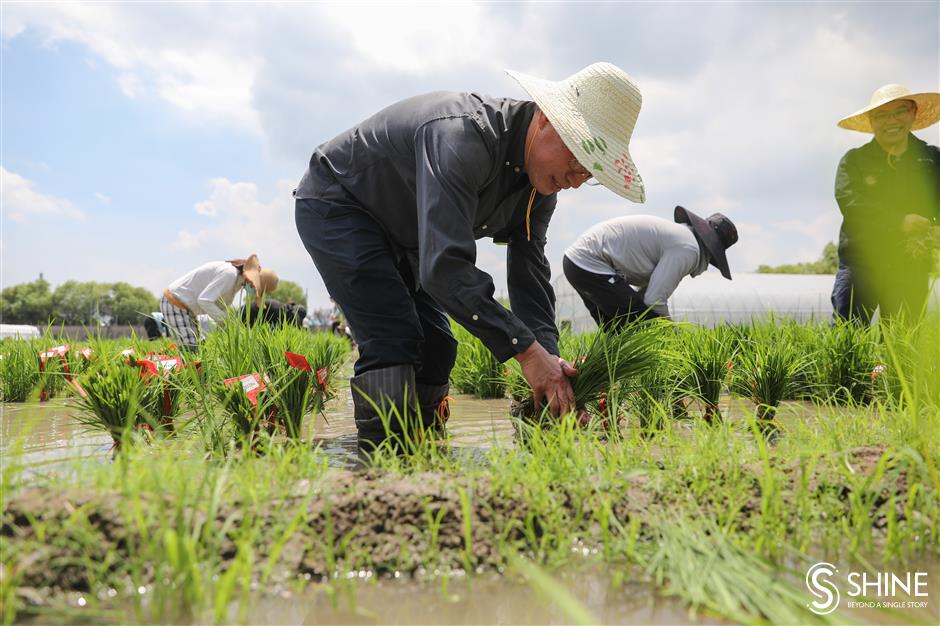
He Zuhua is a man obsessed.
The agricultural scientist is never happy working from his office; instead, he tools in the fields every rice planting season.
The wrath of summer's heat enveloped the fields as the mercury hit nearly 40 degrees at noon. But the 60-year-old, in a straw hat and long sleeves, led his students out to the paddy field to teach them the art of transplanting rice seedlings.
Everyone was boiling hot, but he was underrated.
"I would be anxious without looking at the fields," he said when Shanghai Daily visited him at the Songjiang Experimental Farm in suburban Songjiang District.
He compared the seeds to his children and said, "They promise the future of food safety in China."
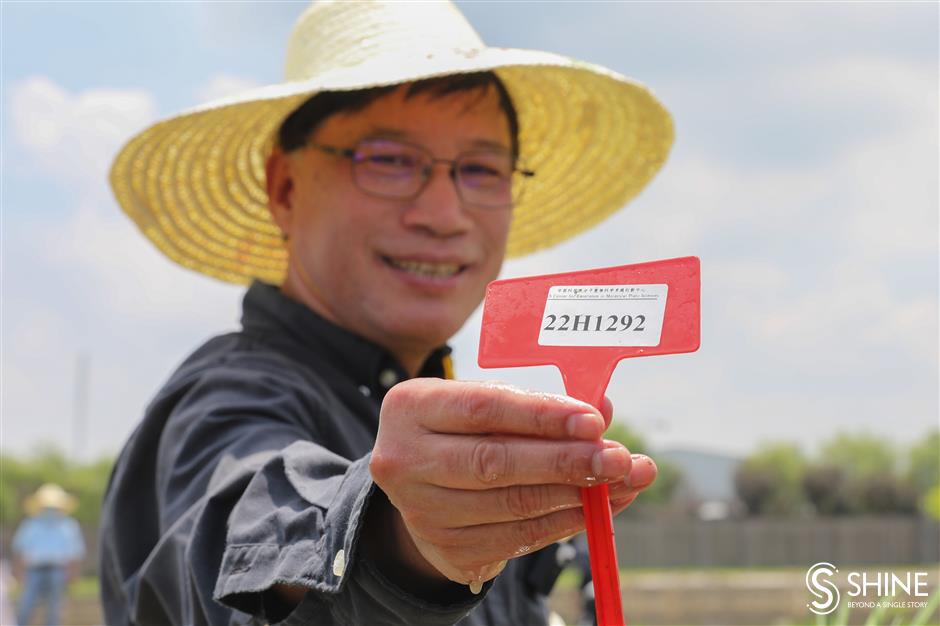
It has been his life for the last 40 years, devoting himself completely to research, especially against rice diseases. His efforts led to the discovery of a new rice disease immunity protein that helps breed disease-resistant rice for improved yields.
Rice is one of the most important food crops, but it is vulnerable to a variety of pathogens.
Rice blast, a severe fungal disease commonly known as the cancer of rice, threatens global food security. It leads to a loss of up to 10 percent of the world's rice yield. Every year, China loses 3 billion kilograms of rice to this fungus.
His research also led to the development of new types of rice that are resistant to rice blast and are now grown over 20,000 square kilometers.
For his contributions, he was among the 10 people to be awarded this year's "most beautiful scientific and technological workers" in Shanghai.
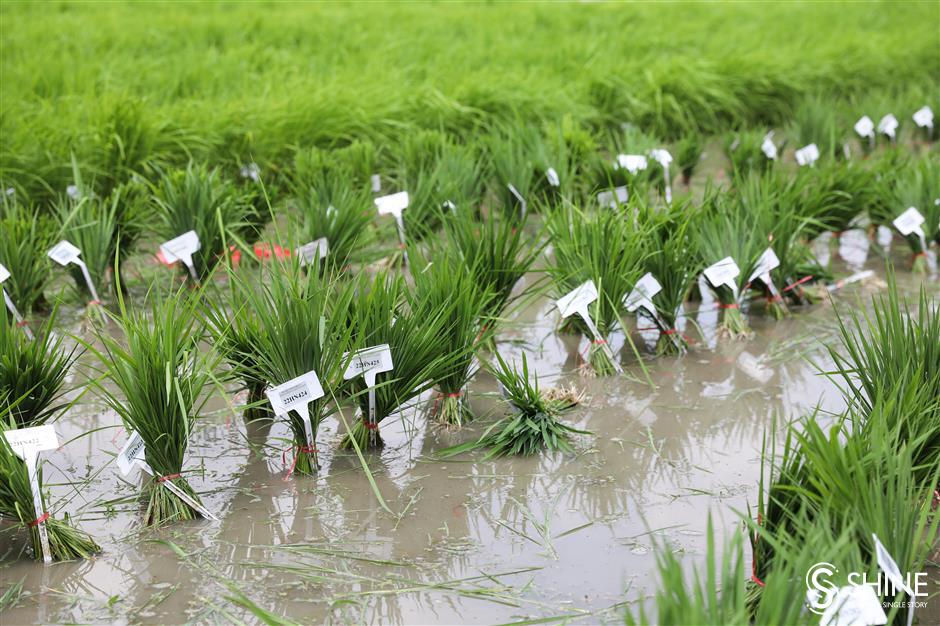
As a country boy, he understood how dangerous rice diseases can be. He was researching rice blast even during his university years.
When he received his master's degree in 1983, he followed his supervisor to the mountainous area of Tonglu County, Zhejiang Province, where he was astounded to see widespread crop failure caused by a rice blast.
At that time, there was a gap between China and developed countries in crop genetics research. So he traveled to the United States in 1997 to pursue postdoctoral research on the subject.
He returned in 2000 with advanced ideas and established his own lab with a single-minded determination to solve China's rice production challenges.
"It's necessary," he said.
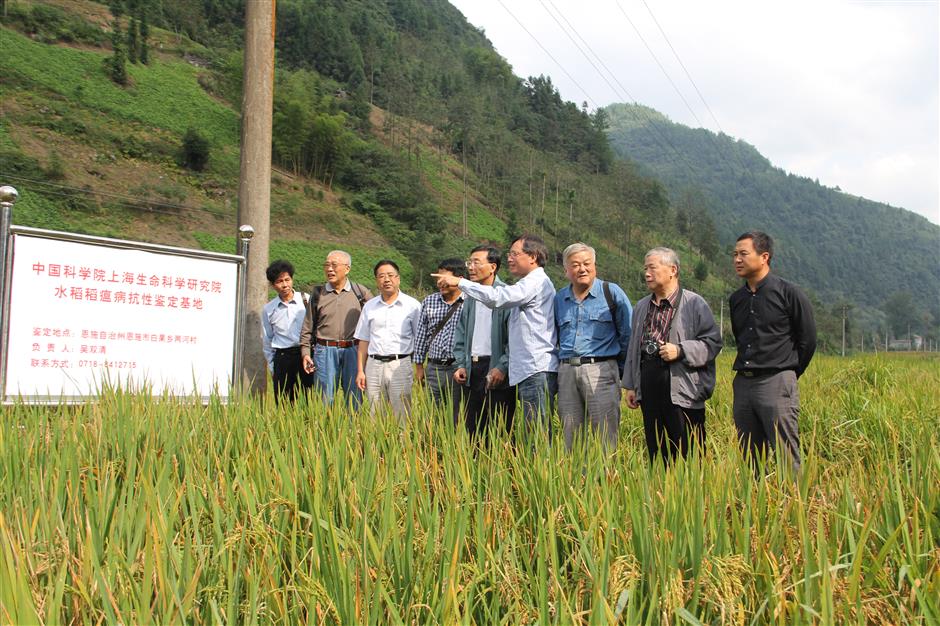
He spared no effort in his research, traveling distances all year from sowing seeds in east China's Hangzhou City in April, cultivating rice in southeast China's Xiamen City in July, and down to the southernmost island province of Hainan in winter.
Twenty years ago, coaches, ferries, and "green trains" (passenger trains) were the popular means of transport. That meant He would end up spending more than 30 hours on a hard seat carriage and another 30 hours on a ferry to Haikou City, Hainan.
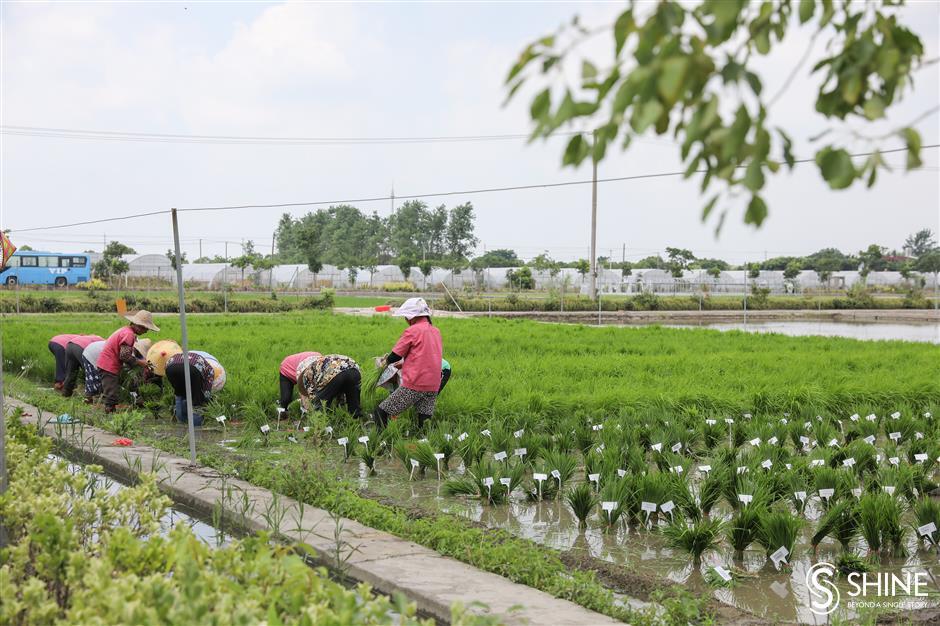
He now leads a research team at the Center for Excellence in Molecular Plant Sciences (CEMPS) at the Chinese Academy of Sciences. He finds more kindred spirits to travel with him to and fro to the country's rice-producing areas to look for the most effective disease-resistant genes.
Years of strenuous efforts have paid off. Breakthroughs in the battle against rice blast were published in the world's top scientific journals like Cell, Nature and Science.
The team is now focusing on rice false smut, another destructive rice fungal disease, which not only causes yield loss of rice but also affects the reproductive system of animals.
"I hope to overcome it in five years," he said.
"A good paper can only be written on the paddy field."
Like him, his students have formed the habit of working on the fields during the rice planting season.
Jiao Fangyuan, 24, had never seen rice transplanting before she joined He's team.
"Though it is scorching hot, we are happy to work in the fields. I feel like I am doing my bit for the benefit of farmers," she said.
Source: Shanghai Daily
Application Status
| 04-16 | 21315227 | Processing |
| 03-12 | 21315226 | Processing |
| 09-26 | 21315225 | Processing |
Inquiry Status
| 02-29 | 02131558 | Received |
| 03-06 | 02131557 | Received |
| 11-14 | 02131556 | Received |
FAQ
Q: Q: Is there a place where I can get...
A: A: Log on to http://touch.shio.gov....
A: A: Log on to http://touch.shio.gov....
Q: Q: What is the easiest way to set u...
A: A: 1. Log on to http://touch.shio.g...
A: A: 1. Log on to http://touch.shio.g...
Q: Where can I get an English map of S...
A: English maps of Shanghai are availa...
A: English maps of Shanghai are availa...

